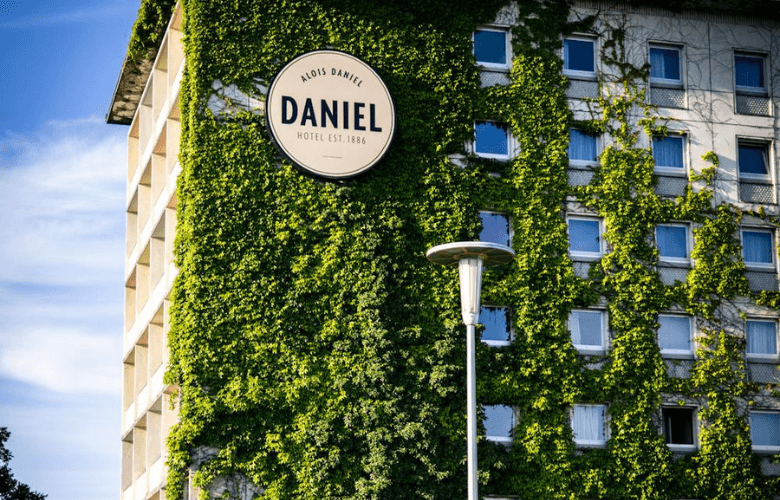It’s been a tough period for luxury hotel operators since 2020. The recent 5-year anniversary of the COVID-19 pandemic brought back memories of the dramatic drop in occupancy, strains from heavy disruptions to critical supply chains, and the long-term effects on staffing shortages. This has been subsequently compounded by dramatic increases in energy costs following the Russia-Ukraine conflict, higher than forecasted levels of inflation, and the recent increase to Employer National Insurance Contributions. Lastly, on top of these financial and operational strains, hotels are also tasked with complying with the UK’s legal obligations to become a more sustainable and net-zero economy by 2050.
With so many challenges facing the luxury hotels sector, many are looking for solutions which can mitigate the strain while increasing profitability and helping hotels transition to net-zero operations. In this article, particular focus is placed on how hotels can reduce their energy costs, limit exposure to the volatile energy market, and enhance their environmental sustainability credentials through a simple 4 step approach:
Step 1: Advanced energy monitoring
Energy purchases are a significant cost for hotels, accounting for approximately 6% to 11% of the total expenditure. Furthermore, energy purchased from the grid is pollutive, accounting for approximately 0.207 kg CO2e/kWh. Therefore it is imperative for hotels to understand where this energy is being used, how it is being used, and if there is an opportunity to reduce it. A key solution to this is through granular energy monitoring solutions (e.g. asset-level monitoring) integrated with skilled energy managers and advanced AI-based data analytics. This would identify areas of unnecessary energy usage (e.g. operational out-of-hours usage), enable financial savings, and reduce associated carbon emissions.
Step 2: Infrastructure efficiency
Energy from the grid is purchased and used to power a hotel for a variety of purposes. This could be in the form of lighting, HVAC (heating, ventilation, and air conditioning), leisure facilities or culinary processes. It is therefore important that these major assets are not just fit for purpose but also efficient. For example, many hotels have antiquated heating systems with an efficiency as low as 65%. An obvious solution is to modernise into more efficient technologies (e.g. air-handling units, higher efficiency heat pumps, ultra-efficient boilers), acting as an effective solution for improving the environmental conditions of the hotel while also dramatically reducing energy costs and associated carbon emissions.
Step 3: Renewable energy solutions
Energy from the grid can be pollutive and expensive, and come with a highly volatile price. Renewable energy solutions (e.g. solar PV) are excellent technologies which overcome all 3 of these problems.
- Renewable generators come from a natural and self-replenishing source of energy to generate electricity. Therefore, they have a fraction of the associated carbon emissions relative to the grid.
- The cost of renewable generators has come down dramatically over the past decade. For reference, a typical rooftop solar PV system has a return within 3 to 6 years and a lifetime cost of energy at only ~5 to 7p/kWh. Therefore, it is significantly cheaper than the grid.
- Renewable generators connected to luxury hotels typically provide between 25% to 40% of a site’s total energy needs. This reduces exposure to the volatile cost of the grid, so reducing the risks to a hotel of spikes in their ongoing energy costs.
Step 4: Flexible energy purchasing
Electricity and gas is like any major commodity – it is traded on an open-market on a daily basis by a group of traders. Many hotels are on fixed contracts, essentially purchasing 12 to 36 months of energy supply based on pricing from a single day. However, a way to manage this risk, open opportunities for longer-purchasing windows, and potentially realise significant savings is through a flexible purchasing framework. Energy is typically a major form of expenditure for hotels, therefore it should be treated with the levels of sophistication which is commonplace in other wholesale purchases.
In conclusion, the past 5 years for luxury hotels has been tough and there will naturally be future challenges on the horizon. But it is important to note that there is a clear roadmap for managing one of these key challenges – high energy costs and navigating the journey to net-zero. If the 4-step process outlined here is followed, it can significantly boost the financial standing of a hotel operator whilst enhancing its environmental credentials.
About the Author
Dr. James Crosby-Wrigley is Head of Sustainability for Commercial and Industrial Energy Supply and Usage at Advantage Utilities. With a Ph.D in Geochemistry, Geological and Earth Sciences/Geosciences from the University of Cambridge, Dr. Crosby-Wrigley now offers business support to a range of companies who are looking to achieve net-zero and manage their energy costs through sustainable energy solutions.







